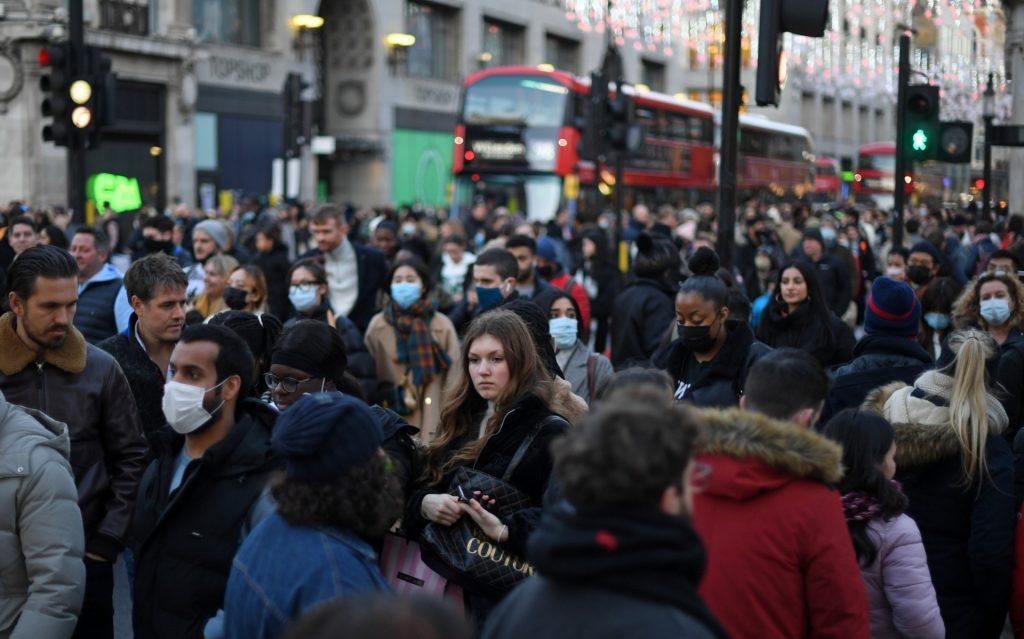UK approves Covid jab for under-12s as govt shortens self-isolation
Britain is in the midst of a stepped-up booster campaign, as it tries to minimise the impact of weeks of rising Omicron infections, aiming to offer a third jab to all adults by the end of the month.
British regulators on Wednesday approved a new formulation of Pfizer’s Covid-19 vaccine appropriate for use in children aged five to 11, as the government cut the isolation period required for positive cases.
The announcements came as Wales followed Scotland in unveiling new post-Christmas coronavirus curbs, primarily around hospitality and large events, as the UK’s devolved nations move at different speeds to surging Omicron variant cases.
Britain’s Medicines and Healthcare products Regulatory Agency (MHRA) said it had approved the new age-appropriate Pfizer-BioNTech after finding it was “safe and effective” for children aged five to 11.
“We have carefully considered all the available data and reached the decision that there is robust evidence to support a positive benefit risk for children in this age group,” MHRA chief executive June Raine said in a statement.
She noted the two-shot formulation was given at a lower dose compared to those administered to adults, with the “overwhelming majority” of reported side-effects related to mild symptoms, such as a sore arm or a flu-like illness.
Britain is in the midst of a stepped-up booster campaign, as it tries to minimise the impact of weeks of rising Omicron infections, aiming to offer a third jab to all adults by the end of the month.
The variant is now the dominant strain of the virus across the country – already one of the hardest hit in Europe, with a death toll of 147,433 and new daily cases at record levels.
Ahead of a flurry of different announcements around the UK on Wednesday, the government in London said people who have tested positive can stop self-isolating after seven days instead of 10.
The change, which could potentially allow many more to join family Christmas celebrations, only applies to those who have taken two negative lateral flow tests.
Antiviral drugs deal
Hours later, the devolved government in Wales announced that from Dec 26 socialising in pubs, cinemas and restaurants would be limited to groups of a maximum of six people.
Two-metre distancing will return in public places, pubs and other licensed premises will be table service only and staff will have to collect contact tracing details, and masks will be required once again.
Large events will essentially be banned, the maximum permissible number of people allowed to gather indoors set at 30, and outdoors at 50.
It follows Scotland unveiling new rules there Tuesday, which also come into force on Dec 26 for at least three weeks and cap attendance at outdoor events at 500.
The move means the pandemic has forced the cancellation of Edinburgh’s hugely popular New Year’s Eve street party for the second successive year.
However, UK Prime Minister Boris Johnson has resisted calls to impose stricter rules in England over Christmas.
The embattled leader, reeling from weeks of scandals and setbacks – including growing discontent among his ruling Conservatives – has said he wants more evidence on Omicron’s severity and ability to evade vaccines.
Meanwhile his government said it had signed deals to buy more than 4 million courses of two new antiviral drugs – Pfizer’s Ritonavir and US rival Merck/MSD’s Molnupiravir – to treat Covid-19.
Molnupiravir, sold as Lagevrio, is part of a national trial run by the University of Oxford that people can join if they have virus symptoms.
Britain was the first country in the world to approve it last month and the authorities will make it available to those at high risk of severe illness, such as people with cancer.
Pfizer’s pill, marketed as Paxlovid, has yet to be authorised anywhere in the world.
The company said Tuesday that clinical trials showed it reduced hospital admissions and deaths among at-risk people by almost 90 percent, when taken a few days after symptoms began.
Both drugs would be rolled out “as quickly as possible” early next year, if Ritonavir is also approved by regulators.
Subscribe to our newsletter
To be updated with all the latest news and analyses daily.
